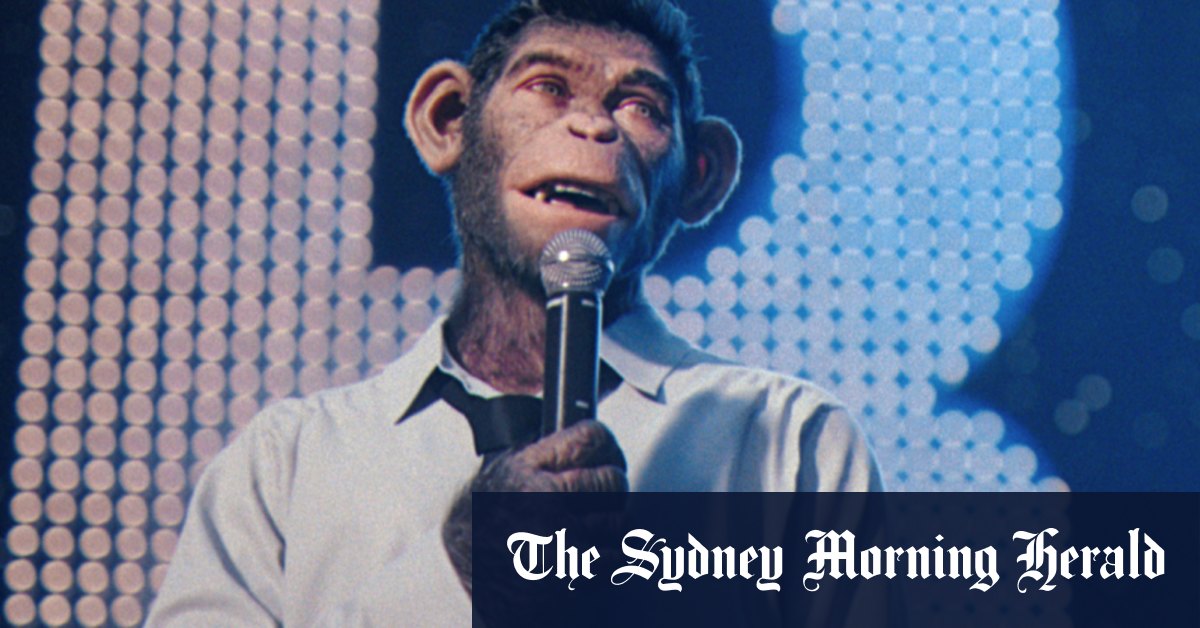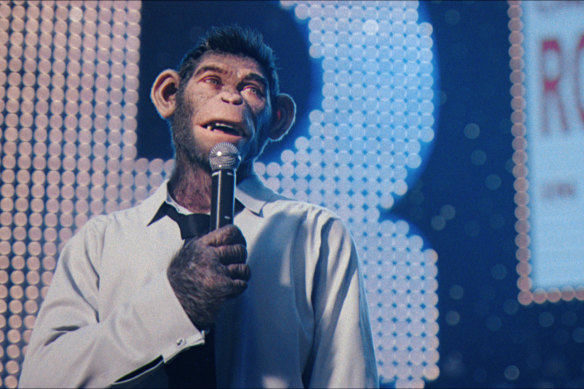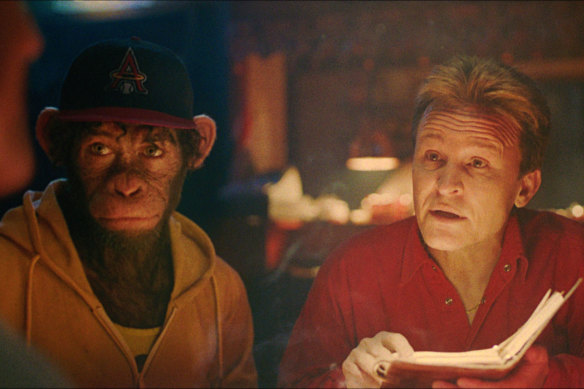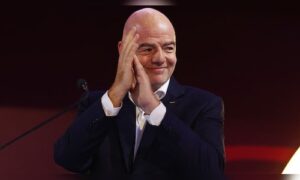
BETTER MAN ★★★
(MA) 135 minutes
Let’s address the primate in the room. Throughout this biopic of Robbie Williams, the British musician appears as a chimpanzee. With British actor Jonno Davies providing an emotionally expressive performance that gets digitally enhanced, the film is set on the planet of an ape. No one else remarks on Williams’ hirsute appearance, as this persona stems from the singer’s insecurity. It’s purely how Williams sees himself.

Jonno Davies plays a monkey version of Robbie Williams in the biopic Better Man.Credit: Roadshow
It’s a suitable gambit, but not because it upends the superstar musician biopic. As directed by Australian filmmaker Michael Gracey, Better Man is sometimes deeply conventional, but as a psychological portrait of how Williams functions, it’s acutely detailed and often wildly uncomfortable. In a jarring film where fame trumps art and the subject mostly fails as a romantic partner, best friend, or a functioning adult, narcissism is the film’s bedrock foundation. This is some real monkey business.
Gracey and his co-writers, Simon Gleeson and Oliver Cole, have engineered a triumphant homage to Williams that can also be construed as a critique. Mostly set between 1990, when a fame-obsessed 15-year-old Williams got his break via chart-topping boy band Take That, and his acquiring of wisdom and sobriety in the mid-2000s, the narrative culminates with Williams commanding the Royal Albert Hall stage, singing Frank Sinatra’s My Way with the absent father, Peter (Steve Pemberton), whose approval he yearns for.

Damon Herriman, who plays Take That’s manager, with Jonno Davies (left), as a monkey version of Robbie Williams, in Better Man.
“You’re one of the gods,” Peter says, giving his son the anointment he craves. Like many elements in this vexing but never pedestrian movie it’s such a ludicrously obsequious line that you can’t help but question Williams’ hunger for vindication. It’s also worth noting that with its recurring Sinatra motif, Better Man ignores British pop history and eschews any influential predecessors. No shoulders are worthy of Williams even standing on them.
Loading
Yet, this is fertile ground for Gracey, a visual effects artist who had a huge hit with his directorial debut, the 2017 musical drama The Greatest Showman. Unlike Baz Luhrmann, who kept Elvis as a frenetic concert film, Gracey is interested in the musical as a visual fantasia. Shot in a Melbourne studio, his set-pieces have a transformative energy. When Take That whirlwind through the streets of a digital London – notably performing a Williams solo hit, Rock DJ – it’s a choreographed delight that captures their impudent ambition.



